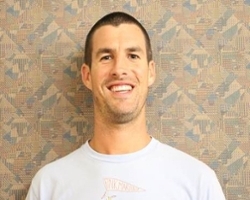Revealing new first-in-class molecules for the treatment of leukemia
Matt Jaremko
Appointment Period: 2015-2017, Grant Year: [29, 30]

Over the last decade, our laboratory has led the way in developing small molecule modulators of splicing with the goal of identifying, validating, and translating a splicing modulator into clinical trials for Chronic Lymphocytic Leukemia (CLL) and Chronic Myelogenous Leukemia (CML). During this period, we have witnessed the entry of E7107 into clinical trials by Eisai Medical Research, and subsequent failure likely due to lack of sufficient medicinal chemical advancement. While a new target for cancer, splicing offers many new avenues to target challenging and resistant cancers. Using leukemia as a primary test bed, we have been working with the Jamieson, Castro and Kipps laboratories at the UC San Diego’s Moores Cancer Center to identify synthetically-prepared splicing inhibitors, designed after their parent natural products that offer improved pharmacological properties. This collaborative project is currently supported by the Leukemia Research Foundation. My project will focus on developing both a structural and mechanistic understanding of the requirements of splicing inhibition, a project that includes a multidisciplinary effort that unites organic chemistry and chemical and structural biology with modern drug discovery. In addition to this effort, we will also be continuing to identify new natural product leads that target CLL and CML. These studies will be conducted by integrating recently developed methods of natural product halogenation as tools to diversify already known natural product leads with the goal of identifying new molecules that offer a high degree of selectivity select-patient derived CLL or CML cells. Both of these research objectives offer an immediate impact to leukemia research through two primary advances. First they identify and validate new drug targets, an important and vital step in translating new chemotherapeutics. Second and perhaps more relevant, they provide materials that are directly viable for clinical examination. Given the recent increase in drug-resistant and complex leukemia, this effort provides an important and vital step towards advancing alternatives for the treatment of leukemia.
PUBLICATIONS (resulting from this training)
Trainee recently appointed to grant: publications are still in progress.
